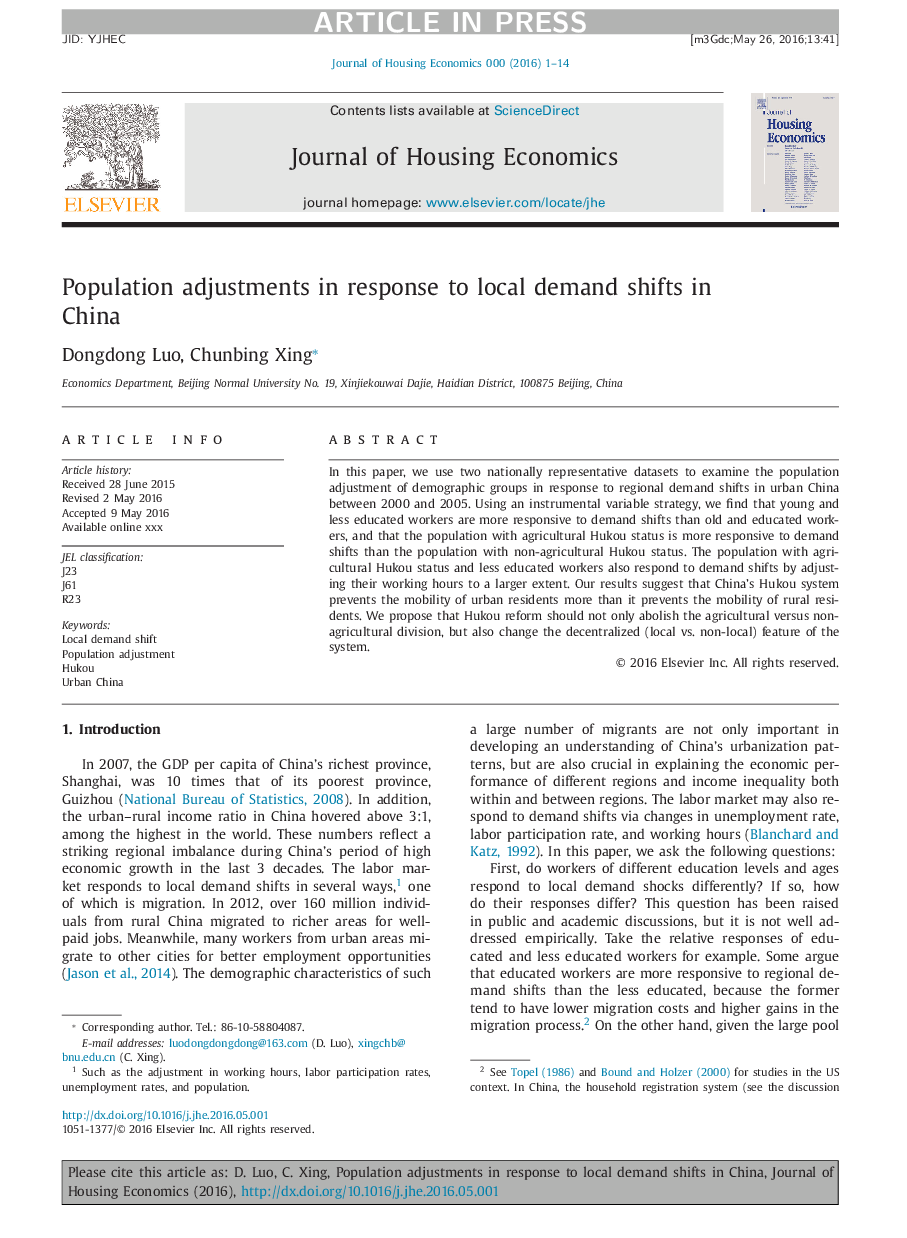| Article ID | Journal | Published Year | Pages | File Type |
|---|---|---|---|---|
| 962557 | Journal of Housing Economics | 2016 | 14 Pages |
Abstract
In this paper, we use two nationally representative datasets to examine the population adjustment of demographic groups in response to regional demand shifts in urban China between 2000 and 2005. Using an instrumental variable strategy, we find that young and less educated workers are more responsive to demand shifts than old and educated workers, and that the population with agricultural Hukou status is more responsive to demand shifts than the population with non-agricultural Hukou status. The population with agricultural Hukou status and less educated workers also respond to demand shifts by adjusting their working hours to a larger extent. Our results suggest that China's Hukou system prevents the mobility of urban residents more than it prevents the mobility of rural residents. We propose that Hukou reform should not only abolish the agricultural versus non-agricultural division, but also change the decentralized (local vs. non-local) feature of the system.
Keywords
Related Topics
Social Sciences and Humanities
Economics, Econometrics and Finance
Economics and Econometrics
Authors
Dongdong Luo, Chunbing Xing,
